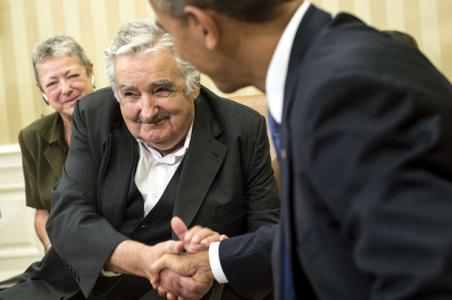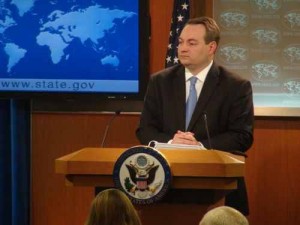
White House acknowledges ‘the Mujica approach’
The White House on Friday (June 20) admitted that President Obama asked Uruguayan President José Mujica to deliver to Cuban President Raúl Castro a bid for the release of Alan Gross, an American citizen serving a 15-year prison sentence in Cuba for introducing illegal communication devices.
(For background on the Mujica-Obama meeting on May 12, click here.)
According to National Security Council spokesman Patrick Ventrell, Obama told Mujica that “Cuba’s continued incarceration of Alan Gross represents a significant impediment to a more constructive bilateral relationship, and securing his immediate release remains a top priority of the United States.”

That statement is consistent with past White House calls for Gross’ release and, of itself, is not new, but in this instance Obama went further, asking Mujica to pass it on.
“President Obama asked that President Mujica use any opportunity he might have to convey this same message to President Castro,” Ventrell added.
In addition, “President Obama urged President Mujica to use his considerable credibility as a regional leader to encourage political and economic reforms in Cuba, noting that such measures would be well received by the United States and other members of the international community,” the NSC spokesman said.
The Uruguayan weekly Búsqueda on Thursday reported that Mujica had delivered the message to Castro on June 14 during the Group-of-77 summit in Bolivia.
The National Security Council describes itself as “the President’s principal forum for considering national security and foreign policy matters with his senior national security advisors and cabinet officials.” Its function is “to advise and assist the President on national security and foreign policies.”
The Cuban government has repeatedly said that it is willing to discuss Alan Gross’ release with the U.S. government but that such a discussion must take into account the release of the three members of the Cuban intelligence team known as The Five who are still in U.S. prisons.
If a straight prisoner exchange cannot be arranged, perhaps a simultaneous release of all four “for humanitarian reasons” would solve the problem, some observers have suggested.
This week, the head of the United States Department of the Cuban Foreign Ministry, Josefina Vidal Ferreiro, issued a statement expressing condolences to the Gross family on the death of Alan’s mother, Evelyn, on Wednesday.
In it, Vidal cited “the situation of Gerardo [Hernández] and his comrades, Ramón Labañino and Antonio Guerrero, who were also sentenced to long terms, other aspects of a profound humanitarian nature concur, which cannot be overlooked. For almost 16 years, they have been separated from their relatives, some of them of advanced age, who cling to the hope that they will have them back, and no longer can see their children grow.
“This lamentable situation could have been avoided,” Vidal wrote. “We reiterate Cuba’s firm disposition to seek, together with the United States, a solution to the cases of Gross and Gerardo, Ramón and Antonio, that may be acceptable to both parties and takes into consideration the humanitarian concerns of both governments and their respective families.”


